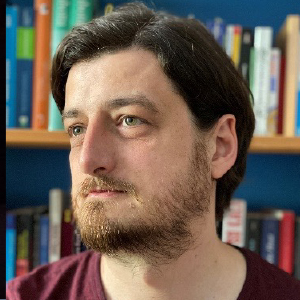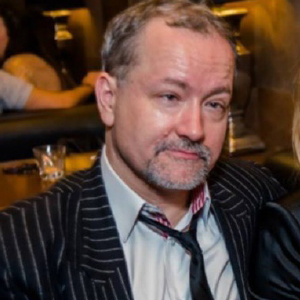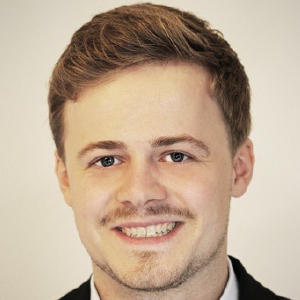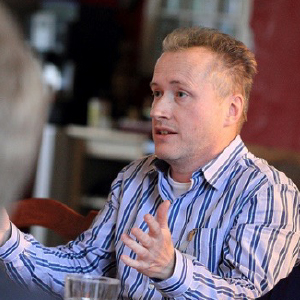Date: Tuesday, June 13, 2023
Time: 2.00 pm – 3.20 pm
Language: English
Room:B1.032 E&G McNabb Theatre
Description:
This lab is focusing on the topic of the ‘4th Space’/hybrid society/hybrid community and it challenges as well as opportunities for our society, politics, businesses, and science. As such, it is a trans- and interdisciplinary topic, for which the lab is a perfect format to identify and develop shared research questions and projects.
We will organize an ‘ideation sprint’ to identify interesting research topics in the area of the ‘4th Space’/hybrid society/hybrid community and inter- as well as transdisciplinary collaboration/cooperation opportunities among the participants of the lab. To do so, we follow a three-step approach:
- We give a comprehensive oversight of the ‘4th Space’ concept and connect it to the expertise of the presenters.
- Afterwards, the participants develop possible research questions/research topics by adding their own area of expertise/interest into the debate.
- Participants decide which of the suggested topics they would like to focus on and, supported by the presenters, create small working groups to start a first exchange on the topic, how they would proceed if they are to develop a joint paper on the topic of their choosing.
After the lab, several working groups have been formed by the participants as well as presenters of the lab. Each working group develops joint papers in the area of the ‘4th Space/hybrid society/hybrid community with the support of the ‘4th Space Research Group’.
Presenters
Dr. Daniel Hardegger is a research fellow the Centre for Competition Law and Compliance (ZWC) at ZHAW School of Management and Law (ZHAW SML), Winterthur. He is leading an international research network, focusing on the rise of the hybrid society, the so called “4th Space”, and its effects of society, politics, economy and science. He was a guest research fellow (until June 2021) at Hasso Plattner Institute (HPI) Potsdam. He acquired his PhD in International History at the London School of Economics and Political Science (LSE), London, and was a guest PhD scholar at Columbia University, New York, and at Humboldt University, Berlin. He is founder of N.CH, an network of negotiation specialists, and co-founder and former board member of Polis180 e.V., the largest grassroots think tank on European and foreign policy in Germany.
Prof. Dr. Piotr (Pete) Boltuc currently is professor of Management Theory at the Warsaw School of Economics; also, Full Professor and Acting Program Chair of Philosophy, and faculty associate at the Department of Computer Science, University of Illinois Springfield and. He focuses on Digital Transformation and its impact on paradigmatic changes of the socio-economic environment of business. This is focused on forward-looking focus on current and emerging AI, especially disruptive technological changes likely to come between the current Industry 4.0 and still futuristic Industry 5.0. Recent publications of articles or chapters at: Cognitive Systems Research; Journal of Artificial Intelligence and Consciousness; AGI/Springer Science; Procedia Computer Science, Oxford University Press. Associate Editorship includes Computation in Neural Systems, Taylor & Francis; Journal of Artificial Intelligence and Consciousness, Philosophy and Science. He also does research in Philosophy of AI, Computer Ethics and Philosophy of Science, and projects in ‘machine consciousness’ and robot ethics.
Dr. Christoph M. Abels is a Post-Doctoral Fellow at the University of Potsdam. His research focuses on individuals’ perception of truth, susceptibility to misinformation, and countermeasures to misinformation. Beyond that, he is interested in the role of technology in virtual community-building, the intersection of technology and geopolitics, as well as foresight methods. Christoph has previously worked in the private sector, including both startups and consulting firms. He holds a master’s degree in public policy from the Hertie School and a bachelor’s degree in psychology from the University of Hagen.
Prof. Dr. Nick Clifton, Cardiff Metropolitan University, UK, is a Professor of Economic Geography and Regional Development. His research interests lie in the fields of regional economics, small business and entrepreneurship, networks, business strategy, innovation, and creativity, focusing on how individuals and firms use networks to acquire knowledge and innovate. He has undertaken funded research for Economic and Social Research Council (ESRC), The Scottish Executive, the Welsh Government, Higher Education Funding Council for Wales (HEFCFW), Federation of Small Business (FSB), Research Councils UK, and the National Endowment for Science Technology and the Arts (NESTA). He serves as Research Excellence Framework (REF) Coordinator for UoA17 (Management) at Cardiff Met. He is a Fellow of the Higher Education Academy and an affiliated member of the Centre for Innovation Research (CIRCLE) at Lund University, Sweden. He serves on the Editorial Advisory Board of Growth and Change: a journal of urban and regional policy.
Prof. Dr. María Luisa Gómez Jiménez is a tenured professor of Administrative Law at Malaga University. She leads the Sustainable Research Group P.A.S.O.S. and Directs the Research Group on Sustainable Housing. Founder of the indexed journal WPS-RISHUR, on Urban Sustainability and Urban regeneration and Director of the Publishing collection on Latin American Studie. She performs also as Assistant Director of the Research Institute of Biotechnology and Blue Economy at Malaga University, while being a member of the Andalusian Research Institute of Smart homes and energy efficiency, and She is member of the Directive Board of the Interprofessional Association of Land planning (FUNDICOT). Her research activities focus on the areas of Land Use Law, Housing, Smart homes, Smart cities, Urban Sustainability, Environmental Issues, e-health, and Social Services. She is a member of the Environmental Policies Observatory from the Minister on the topics of Air Quality.







